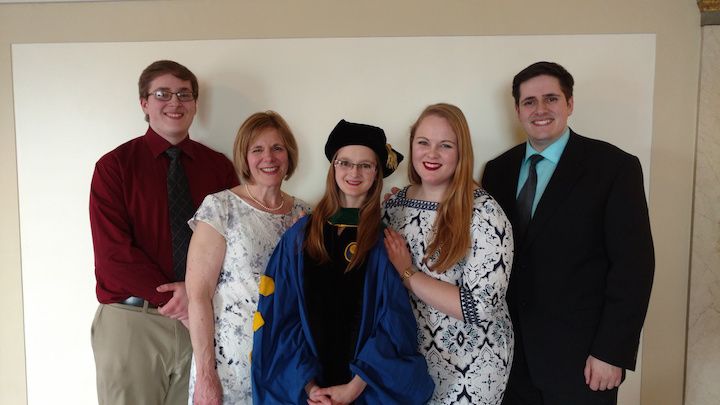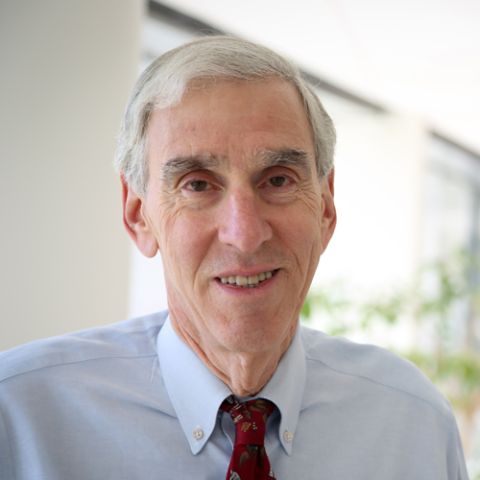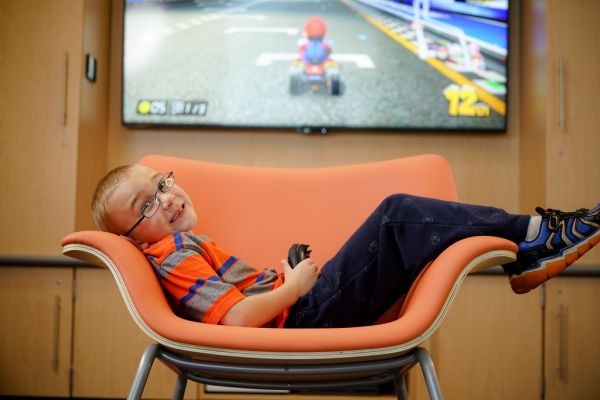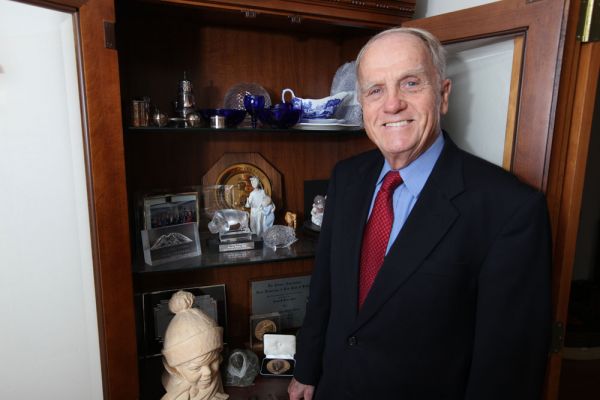As Roswell Park celebrates the opening of its new Katherine, Anne & Donna Gioia Pediatric Hematology Oncology Center, we share the story of one remarkable pediatric cancer survivor who defied the odds at every turn.
November 7, 1991: Kathleen Johnson was bathing her 21-month-old daughter, Megan, when she heard a squeak. “It sounded like a toy,” Kathleen recalls. Leaning closer, she realized that the sound was coming from Megan as she breathed in and out. Kathleen scooped up her daughter and headed for the pediatrician’s office, where X-rays showed what the doctor believed was a lung filled with fluid. “Go directly to the hospital,” Kathleen was told. “Do not stop.”
But exploratory surgery at Women and Children’s Hospital of Buffalo revealed that the image on the X-ray was actually a tumor so large that it had collapsed the little girl’s lung and pushed her heart to the other side of her chest. It was a primitive neuroectodermal tumor (PNET), a rare and very aggressive type of cancer. Doctors advised the Johnsons that Megan’s chances of survival were less than 10 percent.
Never miss another Cancer Talk blog!
Sign up to receive our monthly Cancer Talk e-newsletter.
Sign up!“A Significant Battle”
For more than 40 years, Roswell Park, Women and Children’s Hospital of Buffalo and the University at Buffalo have worked together to care for children with cancer. Martin Brecher, MD, then Chair of Pediatrics at Roswell Park, oversaw Megan’s care. “Megan’s diagnosis meant she was facing a significant battle, especially for one so young,” he recalled years later.
“Although PNET is indeed a rare disease, it’s one of the pediatric malignancies we deal with on a regular basis,” Dr. Brecher says. But treating it in the lung and chest wall of such a young child would involve the risk of significant, long-term side effects, so he contacted a colleague at Dana-Farber Cancer Institute — which, like Roswell Park, is a National Cancer Institute-designated comprehensive cancer center — so they could work together to develop a treatment plan aimed at eradicating the tumor while minimizing side effects. Megan’s team at Roswell Park also recommended that the Johnsons travel to Dana-Farber for an additional evaluation.
The two physicians “were on the same page,” says Megan. After meeting with her parents, Dr. Brecher started Megan on an aggressive treatment plan that included surgery, 90 days of inpatient chemotherapy, and a lifetime adult dose of radiation to her left side.
The surgery removed the tumor and most of her left lung, and the other treatments also took a heavy toll. By the time Megan entered kindergarten, she had to be fitted with a back brace because the intensive radiation treatments had damaged her spine, causing severe scoliosis (sideways curve). “She wore that back brace every day, 23 hours a day, until she was in seventh grade,” says Kathleen. The brace was hot — and visible to everyone — but Megan never complained.
“I Really Wanted to Make a Difference”
At 13, Megan underwent surgery to correct the alignment of her spine. “I had a lot of time off my feet afterward,” she says. “I had a lot of time to read and think about the meaning of life.
“The conclusion I came to is that I really wanted to make a difference, and medicine would be a way to do that. I felt that was a way I could provide a service to people, to use my knowledge and my experiences as a patient.”
Nothing slowed her down. She played violin in her high school orchestra, sang in the chorus and became an accomplished pianist. She joined in the activities with other pediatric cancer patients at both Camp Good Days and Carly's Club at Roswell Park (now known as the Courage of Carly Fund). She and her three siblings — twin brother Dan, sister Elizabeth and brother David — also created artwork through the Roswell Park Alliance Foundation’s Paint Box Project, and at least one of Megan’s designs has been selected for the holiday collection of cards and gifts every year for the past 22 years.
In 2008, Megan ranked first academically in a class of 418 seniors at Kenmore West High School in Kenmore, New York, graduating as the valedictorian. She went on to Dartmouth College, graduating magna cum laude with a B.A. in biomedical sciences. She then took a gap year, during which she took part in Roswell Park’s Summer Research Experience Program in Cancer Science and worked in a laboratory under the direction of Eunice Wang, MD, now Chief of the Leukemia Service at Roswell Park. In 2013, Megan entered the University of Rochester School of Medicine and Dentistry.
Dr. Megan Johnson became the first person in her family to graduate from medical school. Recently she began a three-year residency in internal medicine with the Jacobs School of Medicine and Biomedical Sciences at the University at Buffalo and will complete a rotation at Roswell Park later this year. “I’m looking forward to getting some experience in hematology/oncology,” she says. “It’s one of the fields I’m considering.”
A Doctor with a Patient’s Perspective
Because of the treatments she received, she has a reduced lung capacity of just 30 percent and cardiac issues that must be monitored carefully. She continues to see specialists for follow-up care. “When Megan was first diagnosed, the doctors said that they did not know of another child her age who had ever received that much radiation in that location,” says Kathleen. “So throughout this whole journey, nobody has been able to tell us what to expect. They’ve all been watching her to see what will happen.”
Adds Megan, “Any time you have chemotherapy and radiation, it puts you at increased risk of other cancers down the road. We knew that going into this, and we were OK with it, because it meant I would be able to go down the road. There would be a future.”
Her own medical history helps her empathize with the patients she cares for today. “I know how important it is for patients to feel that their doctors care about them, that they feel like they know what’s going on. I try to make sure the patient is aware of the plan and that they feel their concerns have been addressed.
“I remember waking up in the hospital after one of my surgeries, and there was a nurse checking on me, looking at the surgical incision. She made me feel so safe. I try to communicate the same warmth and safety to my own patients.”
Kathleen remembers feeling helpless and hopeless in the dark days after Megan’s diagnosis. “As a parent, it’s heartbreaking, because you want to make it better, and you can’t. You have to trust in other people, and trust in God, and that’s all you have to go on.
“All of us think she’s going to be an exceptional doctor.”
Editor’s Note: Cancer patient outcomes and experiences may vary, even for those with the same type of cancer. An individual patient’s story should not be used as a prediction of how another patient will respond to treatment. Roswell Park is transparent about the survival rates of our patients as compared to national standards, and provides this information, when available, within the cancer type sections of this website.



